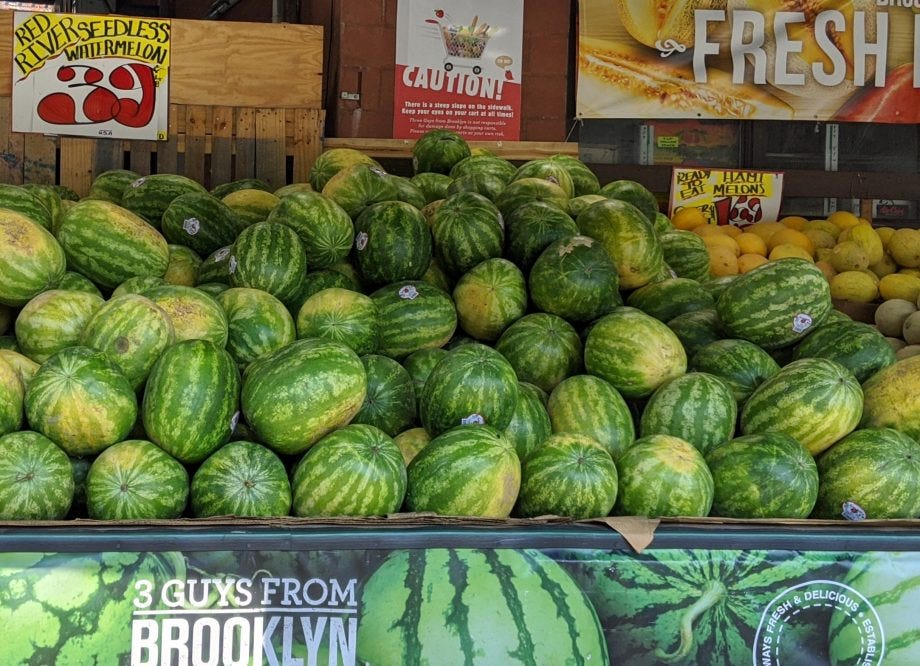A Complicated Berry
Finding racism's history in the damndest places
I eat watermelon almost every day from late June to mid-September. Occasionally I buy winter’s ghostly flavored wedges. There may be mass confusion about what it actually is. Watermelon is a berry. What everyone does agree upon is that it’s abnormally good for you and contains a wide range of health and curative powers beyond soothing a fever.
Even a lousy watermelon is astonishingly good for you. Its flesh contains a wide range of health and curative powers, especially if a fever or sore throat invades the house. Serve it very chilled in a bowl with a few chips of ice and be sure the patient eats as much as possible.
People grill, stew, stir fry, mash, and, of course, freeze it; sprinkle it with an abundance of salt and all manner of spices. Watermelon is also a reason to put aside any semblance of social graces as the juices run down chins and through fingers, the instinct to commence a seed-spitting contest too hard to forbid.
What, then, is not to love about watermelon?
Unfortunately, in America, there is good reason. Watermelon grew wild in Africa, depended upon as a source of water and nutrition. Evidence shows that Egyptians were the first to cultivate it. From there it was packed onto boats by merchants and conquerors and shipped off to the known world. In North America, though, the seeds arrived with slaves. Once established in southern soil, watermelon provided slaves with an easily grown subsistence crop. Masters developed a fondness for it, too. It looked beautiful on their tables, its coolness and sweetness appreciated in the summer heat.
Trouble came after the Civil War, when emancipated slaves found that selling watermelons was a viable way to earn a living. Their prosperity did not go unnoticed and it didn’t take long for the berry’s ability to sustain a free people was corrupted into a image of their inferiority.
Like all racial and ethnic stereotypes, this one's destructive properties have, through the decades, stretched far beyond mere insult. It has helped poison self-esteem, pushing some people to avoid doing anything that seemed too ‘black,’ lest they be lumped into the company of Uncle Remus, Aunt Jemima, or some other relative of racism.—Keith M. Wood, The Poynter Institute
It’s hard to believe that we haven’t all seen or heard examples of how, in the past, watermelon was used to caricature Blacks as lazy, shiftless, and less than human. The first couple of times I came upon such depictions my revulsion centered on the grotesque depiction of the people but not the details that embellished the messaging, a blind spot that seems stuck between being White and Black.

I still love watermelon—today’s breakfast was a bowl of icy cubes. But my mind still stutters in incomprehension that something as elementary as food would be so viciously used to damn an entire race. It’s right to keep in mind how easy it was, and continues to be, to indelibly rob a portion of innocence from a people’s table.




I hope you got my very, very positive comment. Thanks!